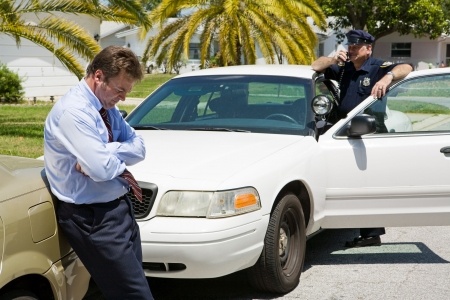Probable cause is a key exception to warrant requirements. In Oklahoma, as in the rest of the United States, the Fourth Amendment of the U.S. Constitution protects citizens from unreasonable searches and seizures. This includes vehicle searches, with certain exceptions where law enforcement officers can search a car without a warrant, such as with probable cause.
How Probable Cause is Determined in a Car Search
Probable cause refers to a reasonable belief, based on specific and articulable facts, that a crime has been, is being, or is about to be committed. It cannot simply be a hunch or suspicion that the officer has. In the context of a car search, officers must base their belief on objective evidence or circumstances that would lead a reasonable person to conclude that a crime is taking place or that there is contraband in the vehicle.
Several factors may contribute to establishing probable cause during a car search, including:
- Visible Contraband: If illegal items, such as drugs, paraphernalia, or weapons, are in plain view, this can establish probable cause. For example, if an officer sees a bag of marijuana on the passenger seat, they have probable cause to search the rest of the vehicle for additional contraband. This may also apply if an officer can detect a smell of illegal drugs or alcohol.
- Admission: If the driver or passenger admits to engaging in illegal behavior, this can create probable cause. For example, if the driver admits to possessing drugs, law enforcement officers can search the vehicle for those drugs.
- Suspicious Behavior: Unusual behavior by the driver or passengers during a traffic stop can sometimes contribute to probable cause. However, the behavior must be accompanied by other factors that give officers reasonable grounds to suspect illegal activity.
- Suspicious Movements: If officers observe suspicious movements, such as attempting to hide items, this may lead to probable cause. Officers may reasonably conclude that the individuals are trying to conceal contraband or illegal items.
Law enforcement officers rely on various observations and interactions that might provide them with sufficient justification to search a vehicle.
The “Automobile Exception” and Warrantless Searches
The “automobile exception” to the Fourth Amendment allows law enforcement to search a vehicle without a warrant if they have probable cause to believe that the car contains evidence of a crime. This exception exists because cars are considered mobile, and obtaining a warrant might take too long, allowing the vehicle to be moved or for the destruction of evidence.
Under the automobile exception, once officers establish probable cause, they can search the entire vehicle. This also includes any containers inside the car that could reasonably contain the object of the search.
Legal Protections and Challenges
Although probable cause allows law enforcement to conduct a warrantless search of a vehicle, they must still follow the law. If officers lack sufficient probable cause to search a car, the court may deem the search unconstitutional and suppress any evidence found as a result. This means the prosecution would not be able to use the illegally obtained evidence in the case against the defendant.
If you believe a violation of your rights occurred during a vehicle search, consult with a criminal defense attorney. Your attorney can review the circumstances of the search, challenge the probable cause used by law enforcement, and seek to have any improperly obtained evidence excluded from the case.
Creek County Criminal Defense Attorneys
In Oklahoma, law enforcement officers myst have probable cause to search a vehicle without a warrant. Probable cause is based on specific facts that would lead a reasonable person to believe that evidence of a crime is present. Factors such as visible contraband and suspicious behavior can contribute to establishing probable cause.
Understanding your rights and the limitations of law enforcement authority is essential for protecting yourself during a vehicle search. Our team at Creek County Attorneys can help you through the legal process and advocate for you. Call us at 918-209-3709 for a free and confidential consultation or ask a legal question here.

